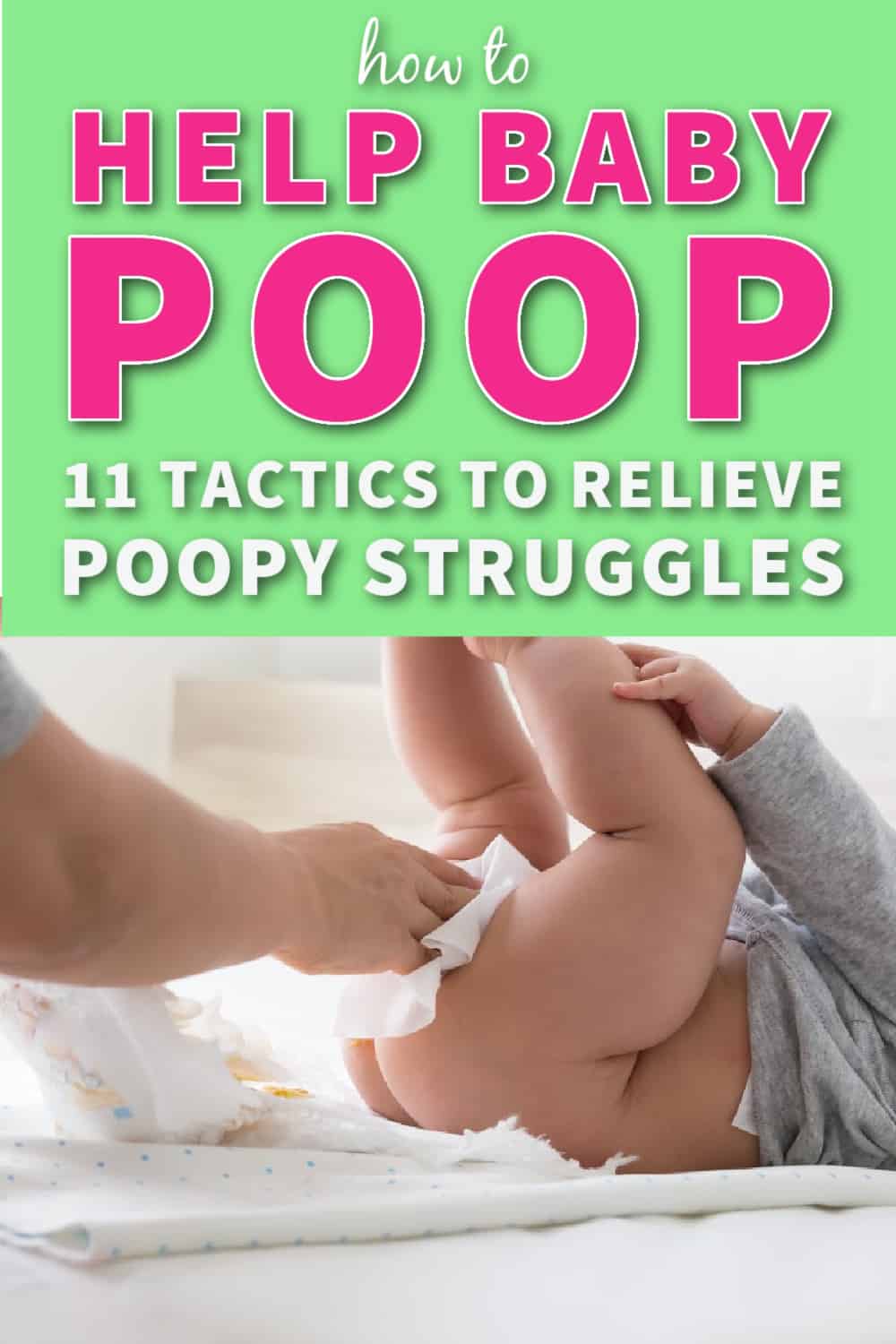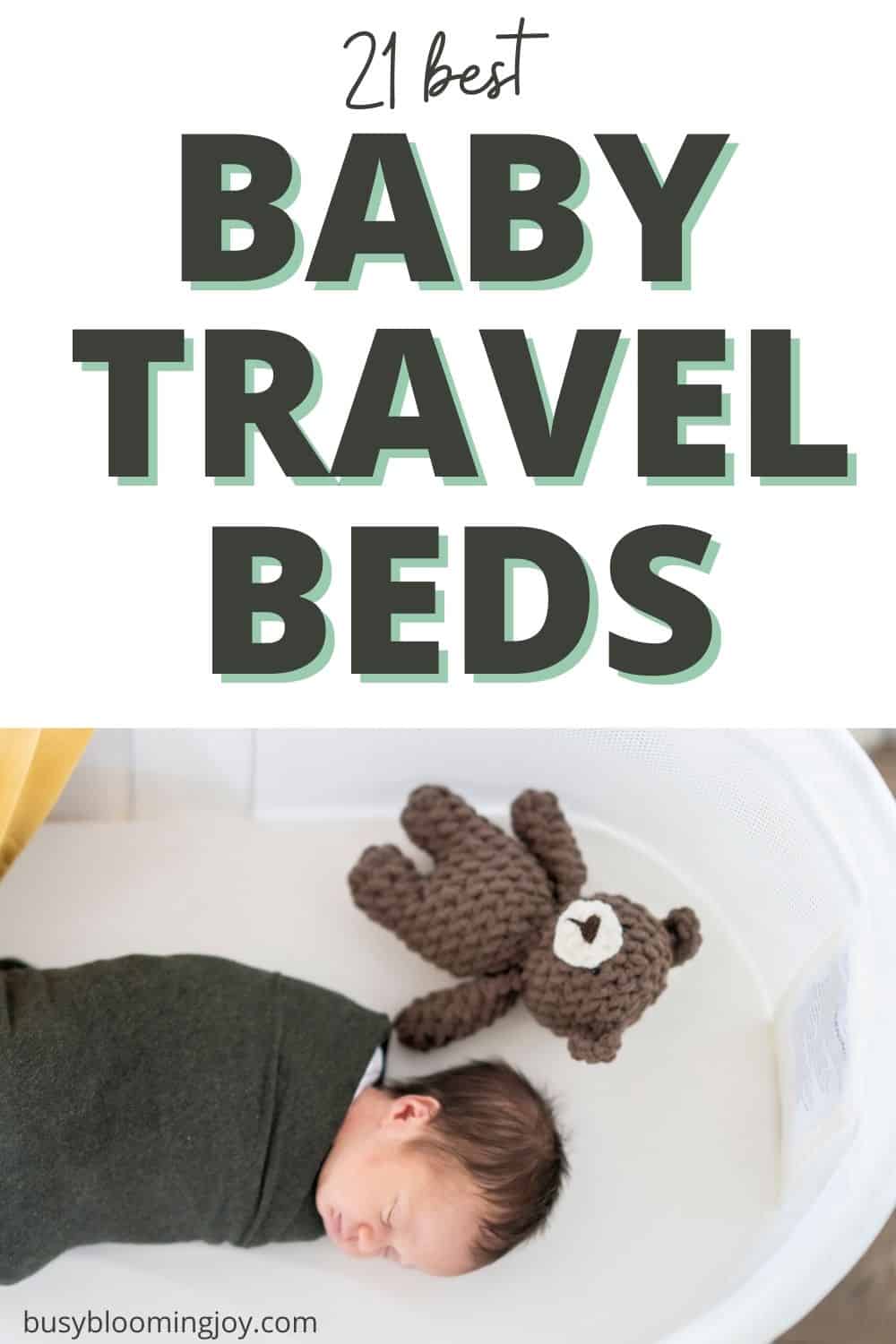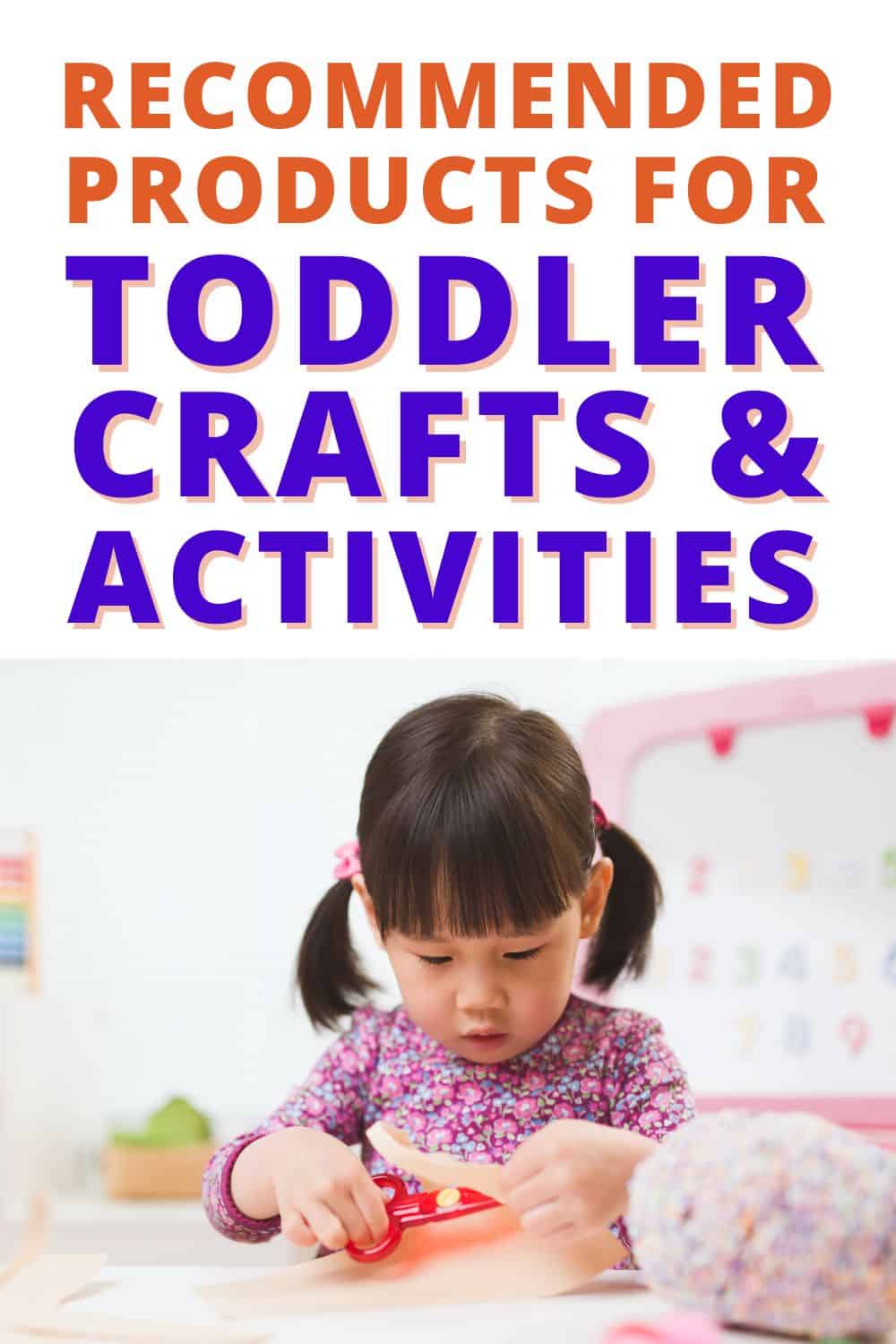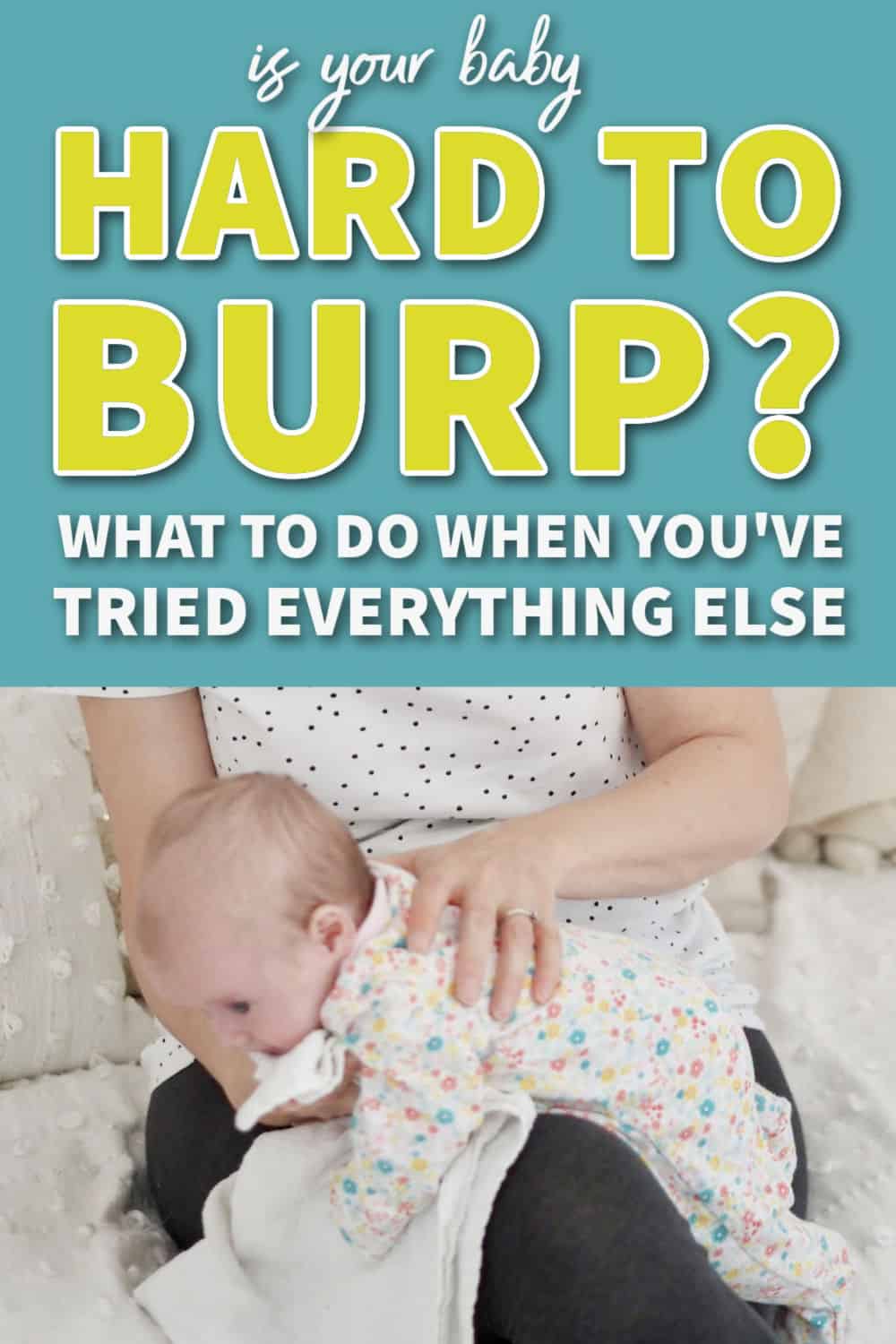Confession time: did you think you would spend this much time thinking about and worrying about your newborn’s poop?
Yeah, I didn’t either. But here we are in all the glories of motherhood.
Newborn poop and all the related questions you may have (how long can a newborn go without pooping, what color should the poop be, how to help a newborn poop instantly and so on) are one of the many mysteries of these tiny, new and precious humans.
Just like most things baby, there no hard and fast rules; they’re all different. Don’t worry you’ll be an expert in your little one’s poop in no time.
If you want to know how to help your newborn poop instantly, it has probably been a while since her last bowel movement. But while some little ones may pass 1 to 2 bowel movements a day, others can go for days at a time without.
What’s more important than frequency, is how difficult it is for your newborn to poop. If your newborn is struggling to make a bowel movement then he or she may be constipated.
This is when you do need to find out how to help your newborn poop instantly, as well as get to the root of the poopy struggles which will allow you to find a long term solution.
The bigger problem comes when your newborn becomes constipated and is struggling to make a bowel movement. Don’t worry if your baby is constipated. I will share with you some tips to help your newborn poop instantly.
Constipation isn’t just about how often your baby poops. It’s also about how tough it is for them to do it. If they have soft, easy-to-pass stools every 4-5 days, they’re probably OK.
Table of Contents
ToggleHow long can a newborn go without pooping?
Poop is the waste products that your baby cannot digest and/or does not need.
After the first few weeks when the poop will come thick and fast (literally), as well as frequently, your baby’s natural pooping rhythm will settle. But it depends on whether you’re breastfeeding or feeding formula.
How often should a breastfed baby poop?
Breastfed babies may go several days between bowel movements since the digestible content of breastmilk is extremely high; they use and digest most of it. For this reason, it can take several days for your baby to build up enough waste to need to poop.
So, once or twice a week might be the norm for a breastfed newborn and this low frequency will continue until weaning onto solids.
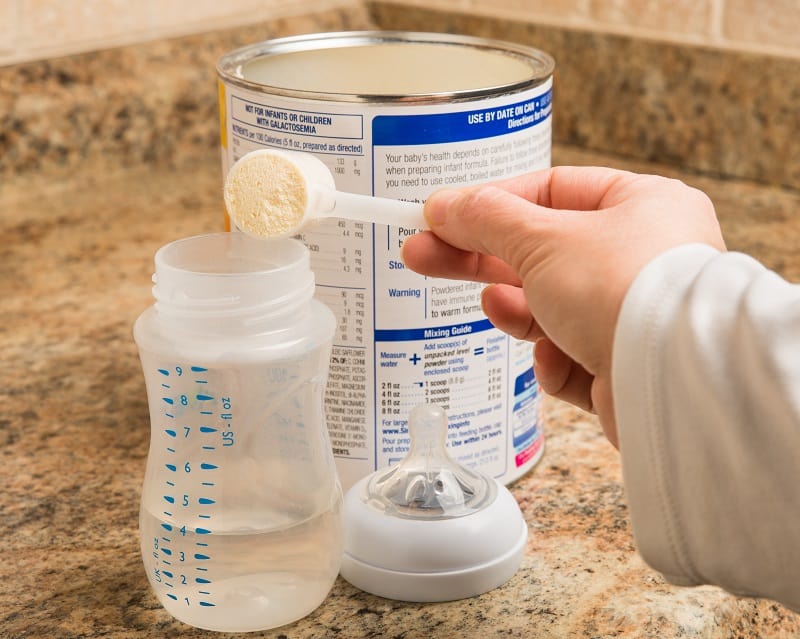
How often should a formula-fed baby poop?
Formula is not as easily digestible and much more of it will be passed as waste. So formula-fed babies will continue to poop frequently, as much as 2-3 times a day right through the newborn phase, continuing at a similar pace at weaning.
How long is too long without pooping?
If your baby goes more than five days without pooping they may be constipated, particularly if formula-fed. But if breastfed, your baby may be able to go a little longer without being constipated.
Remember, constipation isn’t just about how often your baby poops, the bigger indicator is in the ease of pooping, as well as the color and consistency of the poop itself.
You may wish to keep a poop diary to keep track of things (who’d have thought it right?!)
What is considered constipation in newborns?
If some babies poop more often than others, then how do you know when your baby is constipated? Before looking at all the symptoms, it’s worth considering what the norm is when it comes to newborn poop color – deviation from this can indicate on constipation
A word on newborn poop colors
The color of your newborns poop will change rapidly during the first few weeks as baby becomes accustomed to digesting milk.
MECONIUM – DAYS 0-2
Meconium is very dark, thick and sticky like tar. It’s a combination of amniotic fluid, bile and intestinal secretions that’s excreted while baby starts to
TRANSITIONAL POOP – DAYS 2-4/6
Combination of meconium and the first milk stools. It’s dark green or brown, softer than the earlier poops and still sticky
BREASTFED NEWBORN POOP COLOR BY END OF WEEK 1 AND ONWARDS
Mustard yellow color, runny with the consistency of mustard or cottage but may firm up a little over time
FORMULA-FED NEWBORN POOP COLOR BY END OF WEEK 1 AND ONWARDS
Yellow or greeny brown with a thicker consistency, think smooth peanut butter

If your newborn’s poop returns to the very dark, thick meconium color or consistency, is black or bloody then that’s an indication of severe constipation or worse so a trip to the pediatrician is the way to go.
More on newborn poop colors here.
What are the signs of constipation?
WebMd describes constipation in newborns as a difficult time pooping, their stool is hard, black, or bloody, and they go more than five days between bowel movements.
There are other factors that may signal your newborn is constipated; babies may not be constipated if they only exhibit one or two symptoms.
Here are all the signs of constipation in newborns:
- Baby is uncomfortable when making a bowel movement
- Baby has a red, stressed face when making a bowel movement
- Baby has not had a bowel movement in 5 to 10 days
- Poop is much thicker than normal
- Poop is very dark, bloody or black
- Baby’s belly is extremely bloated
- Baby is refusing to feed
- Baby’s tummy feels hard and swollen
- Baby is extremely fussy, and nothing is calming them down

If your baby is experiencing many of these symptoms, it is best to get professional medical advice. Your doctor may want to see your newborn immediately if stools are bloody or black.
In the meantime, there are few things you can try at home to help your baby poop easier.
What causes constipation in newborns?
While it is more common for newborns who are bottle-fed formula to become constipated, it also happens to exclusively breastfed babies.
There are many reasons; it may just be an immature digestive track for some. For others it could be from a sensitivity to something in mom’s breast milk or the formula you’re using.
Lack of fluid in diet
Newborns can become constipated due to a lack of fluid.
Sore gums, sore throat or another discomfort like an ear infection might make it uncomfortable for your newborn to drink, leading to mild dehydration and constipation. If you believe this to be the case, then take baby for a check-up. You need to relieve the discomfort, which will get baby eating again, hopefully solving the constipation and poop struggles in the process.
If you’re formula feeding, be sure you are adding the correct amount of water; too little would lead to constipation.
Change from breastmilk to formula
Since formula is harder to digest than breastmilk, changing from one to the other will affect your baby’s digestion. Weaning onto formula may cause constipation while your newborn’s digestive system adapts.
Switching formulas
Similarly, your newborn may struggle with a change in formula, causing a little constipation as baby adjusts. Some formulas suit some babies better than others, so you may wish to go back to the original formula if it didn’t cause constipation and baby struggles to adjust and poop easily on the new formula.
CMPA
Cow’s milk protein allergy (CMPA) is the most common childhood allergy, affecting around 2-7.5% of babies under a year old according to NHS UK (source). It’s a sensitivity to the milk proteins – most babies grow out of this in the toddler years.
Symptoms of CMPA include constipation, blood in stools and diarrhea.
So if you’re breastfeeding and a lover of dairy or your baby is on a milk-based formula, then CMPA could be the culprit. But in addition, look for skin and respiratory tract issues as normally babies will show symptoms in these areas as well (source):
SKIN
- Rash
- Itchiness
- Swelling, particularly around the eyes, mouth and nose
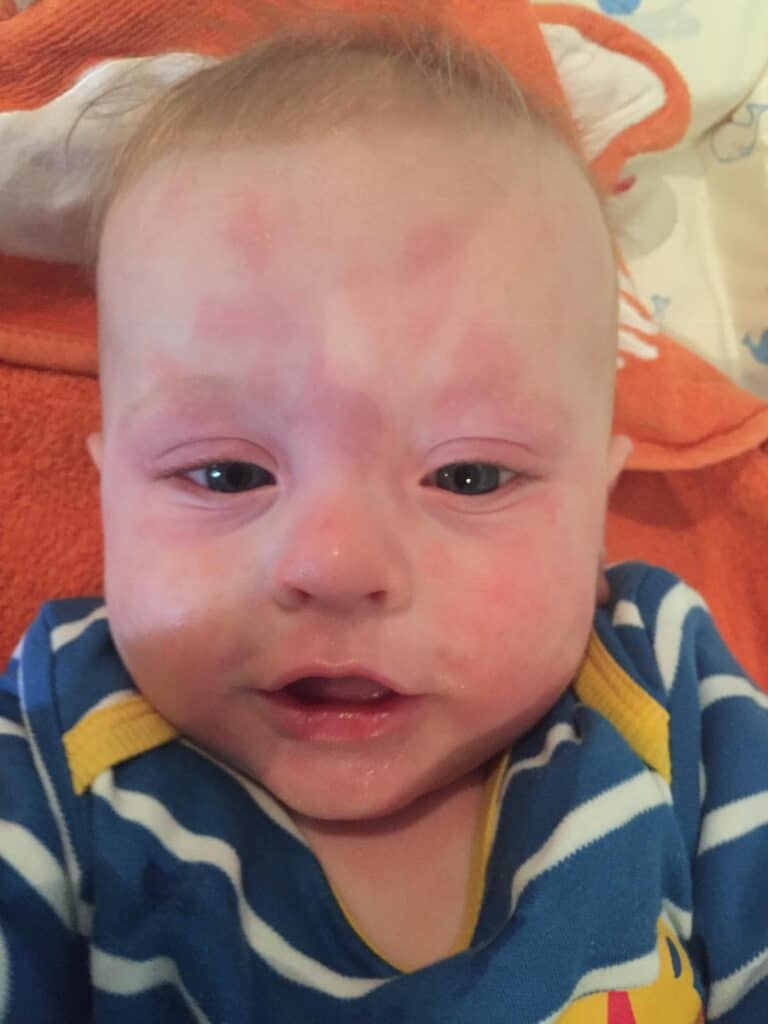
RESPIRATORY
- Runny nose, similar to hay-fever
- Wheezing
- Cough
More on CMPA and other food sensitivities here: My baby is gassy. Is it a sensitivity to dairy or something else?
Tightness in anal sphincter
Part of some babies’ issues with pooping can be that their brain doesn’t know how to relax their anal sphincter to let the poop out. So their brain is holding their anus shut tight while also trying to push their bowel movement out. This is a normal thing for little brains to have to learn.
When we get onto exactly how to help a newborn poop instantly, the techniques tackle this issue.
When is infant constipation a sign of something serious?
While constipation is not typically a cause for serious concern for a newborn, there are a few instances that may require professional advice and intervention.
Intestinal muscles working poorly
Intestinal muscles not contracting correctly could cause a newborn to be chronically constipated something which would have to be urgently investigated by your newborn’s medical team.
Blockage
Another instance would be a digestive system blockage. For example, your baby ate something they weren’t supposed to, or the feces has become so hard that it is not moving in the intestines and causing a blockage. This would need immediate medical attention.
An underlying rare and serious condition
Constipation can be caused by rare conditions such as Hirschsprung’s disease, hypothyroidism or cystic fibrosis. In addition to constipation your newborn will show other chronic symptoms of vomiting and weakness.
Don’t panic – cases are few and far between but if in any doubt, seek professional medical advice.
When to contact your doctor about your newborn’s poo troubles
First-time mothers get a bad rap for calling the doctor at every little concern.
Don’t ever hesitate to call your child’s pediatrician if something does not seem right to you
At 3 weeks old, my daughter was suddenly sleeping a lot more – I took her to the doctor just to be safe and she was immediately admitted with suspected meningitis. Fortunately, it was viral, not bacterial meningitis but I’m so glad I took her in.
Wondering how much newborns should sleep? Check out: Baffled by how much sleep baby needs? Baby sleep chart to the rescue!
If your baby is exhibiting any of these symptoms, go ahead and call your pediatrician:
- Baby is exceptionally irritable, and nothing seems to be helping
- Baby is distressed with abdominal pain
- Baby has a bloody or black bowel movement
- Baby has ongoing constipation that is not improving
- Baby has gone more than ten days without a bowel movement
How to help a newborn poop instantly
If your baby is trying to poop but is struggling and getting frustrated, don’t worry; I have rounded up some of the fastest ways to help your baby pass that difficult bowel movement.

#1 Use a Q-tip with Lube to stimulate the anus
Remember how some babies struggle to relax their anal sphincter or anus while at the same time trying to hard to push the poop out? If you notice your baby is straining but their anus is squeezed tight, you can help them with this simple technique.
STEP 1: Put your baby down on a clean open diaper. Alternately you can use a disposable chuck pad.
STEP 2:Take a q-tip and soak the cotton bud into a water-based lubricant. Yes, KY or any other water-based lube is perfectly fine. Alternately food-grade oils are also acceptable (i.e. coconut oil, olive oil, grapeseed oil, sunflower seed oil).
STEP 3: Lift the baby’s legs with one hand, use your forefinger and thumb to hold the baby’s ankles, and push their knees toward their tummy. If you can, put pressure on their tummy with the same hand holding the baby’s legs.
STEP 4: Place the q-tip with the lube or oil on it into the baby’s anus. For boys, cover the penis because he may also pee. Do not put it in any deeper than the cotton bud and leave it there for about 10-15 seconds. This should let your baby relax the muscles holding their anus closed.
STEP 5: Keep the baby’s legs pushed into their tummy, and within a minute or two, your baby will likely poop.
#2 Use a warm, wet washcloth to stimulate the anus and help baby poop instantly
Another method to help your baby to relax their anal sphincter is to use a warm wet washcloth.
STEP 1: Like the above, you want to have your baby on a clean diaper, a disposable changing pad or some newspaper that can be thrown away easily after the stool makes its apperance.
STEP 2: Hold baby’s ankles and push their knees toward their tummy, then with the other hand, use the warm washcloth to gently massage the anus and their butt until they relax allowing the pooop to exit. For some baby’s the warm, wet washcloth will be plenty of stimulation.
#3 Hold baby in a squatting position
Sometimes it is better to let gravity assist you when your baby is struggling to poop.
STEP 1: when you see your baby starting to grunt, turn red and attempt to make a bowel movement, lift her with feet resting on the floor or table in front of you:
- place your hands under their armpits, your thumbs on their upper chest
- allow baby’s head to rest on the tips of your thumbs while the back of their head is supported and cradled by your fingers and fingertips
STEP 2: With baby well supported, lift her into a squatting position.
Putting your baby into a squatting position may help their bowel and anus work together to release the poop. However, it may not be enough for constipated babies.

#4 A warm bath can help a newborn poop instantly
A less invasive method of helping babies’ poop instantly when constipated is to put them in a warm bath.
The warm water will help them relax the muscles of their anus and can relieve stomach cramps that may be making your baby hold on to a bowel movement.
STEP 1: Hold baby in a reclined position just as if you’re bathing her
STEP 2: Gently pour water over baby’s tummy
STEP 3: If And when you notice that your baby is ready to poop don’t interrupt! Let her poop in the water, then dump the bath water and contents straight into the toilet.
STEP 4: clean and disinfect the bathtub after your baby is done, and give them a regular bath to clean up.
Related post: how to bathe a newborn
(Keep this trick in the back of your pocket for potty training days, when some toddlers will make themselves constipated with the fear of making a bowel movement in a potty.)

#5 Take your baby’s temperature rectally
This works like the q-tip tip, but is an excellent alternative for when you don’t have any.
STEP 1: Gather supplies as before but swapping q-tips for a rectal thermometer for babies (so lube, a clean diaper, newspaper or disposable changing pad, and wipes)
STEP 2: Hold baby’s ankles and lift them toward your baby’s tummy while they are on top of the newspaper (or disposable changing pad) and a clean diaper.
STEP 3: Take the thermometer with lube on it and insert it carefully into your baby’s anus. Leave it in for the 15-30 seconds required to take their temperature and then remove.
STEP 4: Keep the baby’s legs pushed into their tummy, and within a minute or two, your baby will likely poop.
#6 Try an infant glycerin suppository
These have a laxative effect, usually relieving constipation temporarily and allowing a poop to pass in 10-15 minutes.
Glycerin suppositories are available over the counter, but only meant for occasional use; don’t use more than a few times without checking with your pediatrician.
STEP 1: Again, gather supplies needed to minimize poopy mess, plus the suppository, and wash your hands.
STEP 2: Lie baby over your lap, with one hand supporting and holding the chest and arms, other at the ready with suppository.
STEP 3: Insert the suppository into the rectum, as far as it’ll go, and move it around a little, to help the rectal muscles relax.
STEP 4: To help dissolve the suppository so it can do its job, hold your newborns buttocks together.
STEP 5: Wait for the action! Move baby into a different position if you like, but she may find this front-lying position more comfortable than others if constipated or gassy.
How to help your newborn poop easier
There are several things you can do to help your newborn have an easier time when passing a poop. Remember that even pooping is a learned process – many new babies struggle to put the steps of straining, pushing, relaxing together at first.
Here are five ways to help your baby poop easier, with details highlighted below:
- Tummy massage
- Bicycle legs
- Leg push
- Change formula or diet if breastfeeding
- Offer water between feeds if formula-feeding
In addition, the following, which can help your newborn poop instantly can also be used ongoing to aid digestion and help baby poop easier:
- Take rectal temperature
- A warm bath

#1 Tummy Massage
Massaging your baby’s tummy is a great way to help sleepy or slow bowels to move better.
With your fingers and gently rub around the perimeter of your baby’s tummy in a clockwise motion. You can also use some baby lotion and gently rub your baby’s tummy in a clockwise motion around the perimeter of their tummy.
This helps move feces along and also helps with tummy cramps and relaxation of the tummy muscles.
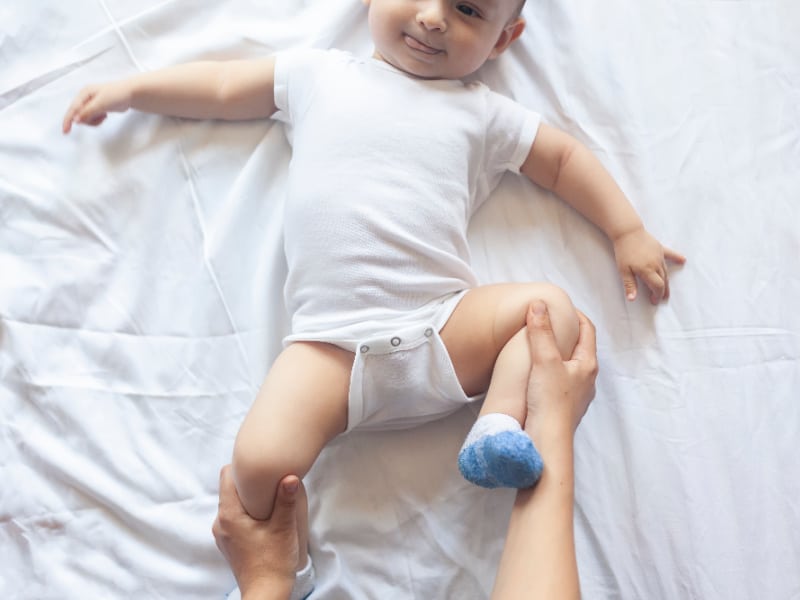
#2 Bicycle Legs
This is probably one of the oldest methods of helping a baby release gas and poop easier.
Simply hold each one of your baby’s legs in one of your hands and slowly pump the baby’s legs in a circular motion like they are riding a little invisible bicycle.
This should be a normal range of motion for your baby, and you should not be moving your baby’s legs too quickly. The motions should be slow and alternating.
Occasionally, while you are bicycling the baby’s legs, you can take both of baby’s legs and gently push them into the baby’s tummy.

#3 Leg push
This is similar to bicycle legs but instead of rotating baby’s legs, simply place your hands on the calves, allow them to bend and push them up towards the belly button and hold. This aids the passage of abdomen contents by squeezing them in the right direction.

#4 Change formula or diet if breastfeeding
If you suspect your baby has CMPA as mentioned above, changing your diet if you’re breastfeeding or trying baby on a different formula could be a game-changer.
A non-milk-based formula may help alleviate some constipation. There are also gentle formulas that have the milk proteins that your baby may be sensitive to already broken down, reducing the incidence of constipation.
If you are exclusively breastfeeding the first thing to cut out is dairy as this is the most common cause. If this doesn’t help, a strategic elimination diet is the next step.
Read more about dairy and other food sensitivities and how to deal with them here: My baby is gassy. Is it a sensitivity to dairy or something else?

#5 Offer water between feeds if formula-feeding
Water should be boiled and then allowed to cool and placed in baby’s normal sterilized bottle. It’s important to only offer water between feeds, so that milk, and therefore calorie, intake is not affected.
#6 Warm bath
Just as a warm bath can relieve constipation and help baby poop instantly, it can also be used ongoing for less poopy struggles. Repeated warm baths help your newborn learn how to relax the muscles around their anus voluntarily.
Pouring cups of warm water over baby’s tummy will also help relax and aid digestion.
#7 Take your baby’s temperature rectally
We talked about using a rectal thermometer to help make your baby poop instantly, but if your baby is regularly tightening their anal sphincter when trying to poop you can keep using this trick. It’ll help your newborn learn to relax those muscles.
Make sure always to use lube and only use a rectal thermometer that is designed for little bottoms.
All your Newborn Poop Questions Answered (Bet you never thought you’d be here!)
Okay, now we know how to make babies poop instantly when they are constipated and how to help them poop more regularly. But I bet you have a few lingering baby poop questions.
Don’t worry. I got you. (And it’s totally normal to worry about your new little person’s bodily fluids and bowel movements, all moms and dads do!)
Is it normal for a newborn to struggle to poop?
It is normal for a newborn to struggle to poop. For most babies, the first time they poop is after they are born, and while you and I can do it pretty much effortlessly, they still have to learn the process.
It does take some coordination of relaxing some muscles while tensing other muscles, and your baby won’t be a natural at first.
Many babies will turn red and grunt when they poop, even when they are not constipated. Do not worry, it is normal.
Is it normal for a newborn to go a couple days without pooping?
It is usual for breastfed babies not to poop every day. But most formula-fed babies will poop at least once a day.
If your formula-fed baby hasn’t pooped in 5 days, they may be constipated, while breastfed babies could go up to a week between dirty diapers.
(Breastfed and formula-fed babies should have multiple wet diapers a day.)
What can I give my newborn to make her poop?
Unless early weaning has been advised by your pediatrician, up to the age of 6 months babies should not be given anything other than breastmilk or formula.
So that means refraining from offering baby fruit juices such as prune, pear or apple juice, which can help with constipation due the natural laxative properties of sorbitol present in these fruits.
Instead, try some of the methods above to help your baby poop.
Also check with your pediatrician before giving your newborn any over the counter medication or supplement claiming to help with constipation.
How do I know if my newborn is struggling to poop?
A baby struggling to poop will often have a red or flushed face, grunt, be cranky, and even cry when trying to make a bowel movement. You may also notice your newborn pulling their knees up into their tummy or chest when trying to make a bowel movement.
This does not necessarily mean your baby is constipated, she may just be having difficulty learning all the steps of pooping.
How often should a newborn poop on formula?
A formula-fed baby may poop as frequently as three to four times a day or may go two or three days between pooping. The most important thing is your baby’s bowel movements are soft and your baby isn’t too fussy or cranky when pooping.
Why does my baby fart but not poop?
Babies are naturally gassy, for many many reasons. They ingest air while feeding (even more so when fed by bottle) and gas is also produced in the gut.
Related post: Got a gassy baby? 16 Common causes & remedies to fix them for good
All this gas needs to be passed, via a burp (for gas trapped in the stomach and upper digestive tract) or a fart (for gas trapped lower down). So babies fart even when they do not have to poop (just like we do!)
If your baby is not pooping frequently enough, try some of the mentioned methods to help your baby poop easier.
Can babies fart when constipated?
Babies can also fart if constipated. Sometimes you might even notice an increase in farting as your baby attempts to push out the bowel movement but only passes gas.
Trapped wind and excess gas is not necessarily a sign of constipation, baby may just be exceptionally gassy. For gas causes and remedies check out:
Can you give a newborn an enema or laxative?
You should not give a newborn an enema or a laxative. If none of the tricks or tips are helping your baby pass their poop, then it is time to call their pediatrician and see what they recommend. Never give an enema or laxative to a newborn baby as it can cause more problems.
Is it okay to give a newborn apple or prune juice for constipation?
Most pediatricians will advise against giving your newborn any type of fruit juice until they’ve reached weaning age (normally 6 months) – 100% of their nutritional needs should be met from breast milk or formula.
You might worry your newborn isn’t pooping enough; keep in mind every baby is different!
The number of times a baby poops seems to be one of the first ways we start comparing our babies to a standard. Every baby’s body is different. Even if their older sibling pooped at a different frequency, that doesn’t mean your newest baby will be the same way.
Don’t worry too much about how often your baby is pooping unless they show they’re showing several of the symptoms of constipation.
Remember, very hard, black stools or the presence of blood or no bowel movements in excess of 5 days requires a checkup from your pediatrician.
